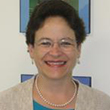UN official examines global business ethics
Published: February 13, 2015 / Author: Matthew McKenna

Joan Dubinsky, director of the United Nations Ethics Office, wrapped up the Mendoza College of Business’s Ethics Week by sharing stories from her professional experience that contained lessons about business ethics in a world of mixed cultures and experiences.
Dubinsky said in today’s world, ethics must be clearly defined, and people must not have arguments about what ethics is.
“Ethics is about how we make tough choices,” Dubinsky said. “Or, put more eloquently, ethics is the set of criteria or principles that we use when selecting a course of action in the face of competing values.”
Dubinsky said honesty in business is important, and her field was recently created to ensure that morality occupies the proper place in the realm of business.
“We ethics officers, well, we’re the experimental philosophers,” Dubinsky said. “We creatively solve everyday problems and challenges. We look at rights, duties and obligations. We consider the perspectives of multiple stakeholders, and we examine how to exercise moral judgment in the every day challenges of business.”
Dubinsky said while her particular field of work is relatively new, it has roots in the early history of humanity and civilization.
“The Hammurabi code of Babylon dates roughly to 1772 B.C.E.,” Dubinsky said. “It represents, as far as archaeology can tell us, the first written evidence of a legal system. In today’s knowledge it’s a bit draconian, an eye for an eye. But it set forth basic principles of justice like the presumption of innocence or the right of the accused to give evidence or speak.
“From this very early example, we learn that the rule of law matters,” she said. “As part of the United Nations, we reinforce every day the importance of the rule of law, because in our world, might does not make right.”
Dubinsky said never to assume people share the same ethical realities because an individual’s perception of ethics can be influenced by culture and other factors.
“We are guests in the world,” Dubinsky said. “As imperfect as our world is, there might not always be a best, or even a good, answer to a moral choice that we face.
“Because we are an international and diverse organization, I have to ask if our conflicts of interest are absolute or if they are influenced by the countries in which they arise or by the nationality of the people in the drama,” she said.
Dubinsky said there is a fine line between a genuine gift and gift given for reasons other than generosity.
“Sometimes I wonder if you can you ever exchange gifts in a business setting without strings attached,” Dubinsky said. “Conflicts of interest are not always absolute, and detecting them requires a great deal of finesse and empathy.”
Ethical action is not always the obvious or easy solution, and it takes real courage and prudence to act in a moral fashion, Dubinsky said.
“Your ethical compass, as a business person and citizen of the world, permeates your choices,” she said. “You hold a mirror through which you can reflect your ethical self, and my prayer for you is that this mirror is not distorted.”
Dubinsky said United Nations ethics is a “contact sport” that is not purely theoretical.
“To do ethics, we must be willing to engage in the world as we find it, with all its imperfections, and not the world that we wish it to be,” Dubinsky said.
Related Stories




